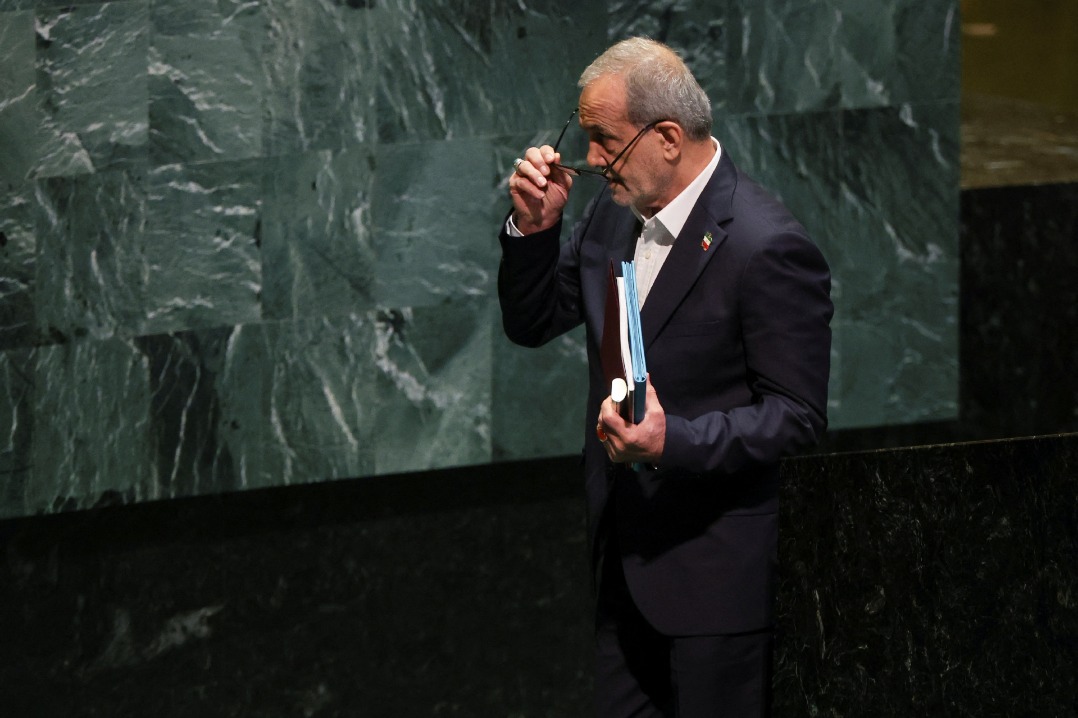Denmark bans civilian drones over security fears

Denmark's Ministry of Transport has announced a ban on all civilian drone-flying in the country's airspace from Monday to Friday because of ongoing security concerns caused by unidentified drone activity around airports and military installations.
Unauthorized drone activity has been taking place for around a week and the decision to clamp down on it came ahead of two major political meetings in Denmark, as it first hosts leaders of European Union member states, and then political leaders from across the continent at a summit of the European Political Community, which is a 47-country intergovernmental body set up in 2022 following the outbreak of the Russia-Ukraine conflict and includes EU states and countries such as the United Kingdom, Ukraine, and Turkiye.
The source of the drone flights has not yet been identified, and the ministry said the decision had been made to "remove the risk that enemy drones can be confused with legal drones, and vice versa".
Exemptions will be granted to police, military, and emergency services drone flights, and those used in the provision of health services.
Denmark's Transportation Minister Thomas Danielsen said a violation of the prohibition could result in a fine or imprisonment for up to two years.
Defense Minister Troels Lund Poulsen said what he called a "hybrid attack", meaning a mix of military and non-military activities, seemed to be the work of a "professional actor" but appeared to have been launched locally, rather than externally.
Justice Minister Peter Hummelgaard added that the aim of the drone interference seemed to be to sow fear and division, and that Denmark would explore different ways to neutralize drones, including potentially going as far as shooting them down.
Although there has been no identification yet of who was behind the activity, both Denmark's Prime Minister Mette Frederiksen and Mark Rutte, secretary-general of the NATO military alliance, have said Russian involvement cannot be ruled out.
Russia's embassy in the Danish capital Copenhagen called any suggestion of the country's involvement "absurd speculations" and dismissed the incident as "staged provocations".
After a NATO meeting in Latvia on Saturday, a spokesperson for the group's Supreme Headquarters Allied Powers Europe said NATO officials were in constant touch with Danish authorities over the issue, and that patrols over the Baltic Sea region would be "conducted (with) even more enhanced vigilance".
































